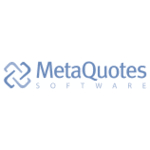TechnologyCounter provides genuine, unbiased real user reviews to help buyers make informed decisions. We may earn a referral fee when you purchase through our links, at no extra cost to you.
List of 15 Best Investment Management Software
Showing 1 - 15 of 105 productsemX is an innovative software designed to revolutionize your business operations. With its advanced features and user-friendly interface, emX streamlines processes and boosts efficiency. Say goodbye to time-consuming tasks and hello to a simplified,...Read emX Reviews
Stessa is a solution for real estate investors. With its user-friendly interface and data management capabilities, Stessa streamlines your investment portfolio and provides valuable insights for smarter decision making. Say goodbye to manual spreadsh...Read Stessa Reviews
HedgeGuard is the leading software solution for hedge funds, offering advanced tools and features to streamline operations and enhance performance. With its user-friendly interface and powerful analytical capabilities, HedgeGuard empowers fund manage...Read HedgeGuard Reviews
FundPortal is a software solution that aims to simplify and streamline the process of managing and investing in funds. Designed for financial institutions and individuals alike, FundPortal offers a user-friendly interface and powerful features that m...Read FundPortal Reviews
Macroaxis is a software that empowers investors to make informed and strategic decisions. Designed to provide unparalleled insights and analytics for financial markets, Macroaxis is a leading platform that offers a wide range of tools to help investo...Read Macroaxis Reviews
TeamWox is a and dynamic team management software designed to optimize workflow and increase productivity. With its user-friendly interface and robust features, TeamWox allows teams to collaborate seamlessly is a ly on tasks and projects. Say goodbye...Read TeamWox Reviews
FinFolio is a leading portfolio management software designed for financial advisors and investment firms. With advanced technology and streamlined features, FinFolio provides a seamless solution for managing and analyzing portfolios, saving valuable...Read FinFolio Reviews
FactSet is a leading provider of financial data and analytics software used by investment professionals, research analysts, and corporate executives worldwide. With its extensive range of features and tools, FactSet delivers accurate and up-to-date m...Read FactSet Reviews
PackHedge is a financial management software that provides users with the tools they need to make informed investment decisions. With its intuitive interface analytical capabilities, PackHedge simplifies portfolio management and helps users stay ahea...Read PackHedge Reviews
MProfit, a powerful software designed to simplify your financial management tasks. With user-friendly features and innovative solutions, MProfit helps you effortlessly track and organize your investments and expenses. Stay on top of your finances wit...Read MProfit Reviews
Sage 50cloud provides a comprehensive desktop accounting solution that streamlines account management and allows for more focus on business growth. Their user-friendly Sage 50cloud Accounting software has greatly benefitted small businesses and entre...Read Sage 50cloud Reviews
VESTBERRY, the innovative software designed to revolutionize the way you manage your wealth. With its user-friendly interface features, VESTBERRY empowers individuals and businesses to take control of their financial future with ease. Say goodbye to...Read VESTBERRY Reviews
Bankers Realm is a banking software designed to revolutionize the way financial institutions operate. Our innovative platform offers a seamless is a banking experience, allowing bankers to easily manage transactions, data, and customer interactions...Read Bankers Realm Reviews
Enfusion is much more than just a software - its a full-spectrum, end-to-end solution for financial technology. Created with the needs of investment management professionals in mind, Enfusion offers a seamless and streamlined experience, empowering u...Read Enfusion Reviews
DXtrade, the all-in-one trading software that simplifies and accelerates trading processes. With its intuitive interface features, DXtrade empowers traders to make efficient and informed decisions, while providing a seamless experience. Say goodbye t...Read DXtrade Reviews
- What Is Investment Management Software?
- Top Reasons Why Businesses Need Investment Management Software?
- What Are the Top Key Features of Investment Management Software?
- What Are the Top Benefits of Investment Management Software?
- What Are the Steps to Choose the Right Investment Management Software?
- What Are the Types of Investment Management Software for Different Industries?
- What Are the Technology Trends for Best Investment Management Software?
- What Are the Deployment Options for Investment Management Software?
What Is Investment Management Software?
Investment management software refers to a category of software utilized by financial advisors, institutions, and investors for the purpose of effectively managing investments and portfolios. The program is mostly utilized for making investment portfolio decisions and continuously monitoring performance.
Investment management systems serves as a valuable tool for monitoring investments, formulating plans, overseeing portfolios, and evaluating the long-term effectiveness of different approaches. The software facilitates convenient access to investment-related data and portfolios for investors.
Furthermore, it can also facilitate the process of identifying and allocating assets, as well as monitoring the performance of a portfolio. Furthermore, the software has the capability to offer significant information pertaining to the markets and the performance of a specific asset class.
The investment software is employed to streamline the procedures linked with investment management and portfolio management. Furthermore, this tool can be utilized to monitor the performance of competitors within the market, so enabling the identification of potential investment prospects.
The investment software possesses the capability to generate a diverse range of reports pertaining to the performance of the portfolio, in addition to facilitating an assessment of the overall performance of the portfolio. Furthermore, the software serves as a valuable tool for assessing the most advantageous distribution of assets within a portfolio.
In brief, investment management tools serves as a valuable tool for effectively maintaining and enhancing portfolios. Financial advisors, institutions, and investors utilize software applications to monitor investments, evaluate portfolio performance, and formulate strategies for future investment endeavors.
Top Reasons Why Businesses Need Investment Management Software?
1. Streamlines portfolio decision-making: Investment management software has the potential to streamline and expedite the decision-making process involved in portfolio management for businesses.
This is achieved through the establishment of predetermined criteria and the provision of data pertaining to existing investments as well as the risks connected with prospective investments.
2. Automates sophisticated analytics: Investment software streamlines the task of assessing investment prospects by securely storing and analyzing data from many sources and automatically performing calculations.
3. Enhances customer service: Investment software has the potential to enhance customer service and optimize customer happiness by offering real-time updates on investment performance, current market circumstances, and actionable knowledge to customer care professionals and advisors. This enables a more efficient customer service process.
4. Maximizes return on investments: Investment management software is specifically developed to assist businesses in identifying and selecting the most advantageous investment options, as well as making informed decisions regarding portfolio composition, with the ultimate goal of maximizing their return on investments.
5. Reduces operational costs: The implementation of investment management systems results in a reduction of administrative costs by automating repetitive procedures and facilitating the identification and elimination of unnecessary activities.
6. Enhances regulatory compliance: The best Investment management software enhances regulatory compliance for firms by facilitating secure storage of customer data and effective tracking of critical documents.
7. Increases transparency: Investment management tools facilitate firms in obtaining a holistic perspective of their investments, so allowing them to assess performance and uncover prospective avenues for enhancement.
8. Enhances collaboration: Investment management software enhances collaboration among both internal and external stakeholders through its provision of multi-user access and secure data exchange functionalities.
9. Improves portfolio performance: The program facilitates organizations in optimizing their portfolio returns by offering real-time analysis and insights into portfolio performance.
10. Enhances portfolio management: Investment software facilitates the simultaneous monitoring of portfolio performance across several portfolios for businesses.
11. Improves portfolio risk management: The program facilitates enhanced efficiency in the identification and management of risk issues for enterprises.
12. Optimizes monitoring of client portfolios: Top investment management software facilitates the optimization of budgetary decision-making processes by enabling organizations to anticipate their investments and assess performance trends over a specified duration.
The program facilitates the task of monitoring portfolio performance for various clients by offering real-time data and customized reports.
13. Enhances client communication: The investment software facilitates enhanced communication between organizations and clients, enabling fast dissemination of information, secure exchange of data, and personalized customer support.
14. Improves budget forecasting: Investment management tools facilitates the optimization of budgetary decision-making by enabling organizations to project their investments and evaluate performance trends.
15. Enhances collaboration with brokers and other financial advisors: The utilization of software can enhance the efficiency of organizations in managing and coordinating activities with brokers and other external specialists.
What Are the Top Key Features of Investment Management Software?
1. Account Management: This functionality enables users to manage their profiles and monitor their investments inside a unified platform. This platform offers comprehensive reports, facilitates performance comparison with market benchmarks, and enables the specification of risk management parameters inside a unified interface.
2. Portfolio Optimization: Top investment management software facilitates the generation of optimal portfolios through the utilization of automated models that account for risk adjustments and possess the capability to conduct backtesting. This offers investors with practical insights and advice to enhance their investment returns.
3. Tax Management: This functionality facilitates the automated computation, monitoring, and submission of tax obligations pertaining to investments. This approach facilitates and optimizes the entire procedure, resulting in time and cost savings.
4. Compliance: Investment management software provides robust features to ensure that investors adhere to both local and national compliance standards.
5. Automated Transaction Processing: This particular feature enhances the efficiency of transaction flow within a portfolio by facilitating streamlined processes and effectively validating and processing transactions. Consequently, it effectively reduces the overall latency associated with these transactions.
6. Market Research and Predictive Analysis: Investment software commonly incorporates interconnections that offer significant market data, hence facilitating enhanced decision-making capabilities for investors.
7. Real-time Monitoring and Management: This functionality enables investors to closely monitor the market and actively manage their investments in real-time.
What Are the Top Benefits of Investment Management Software?
1. Automated Investment Management: Investment management software provides automatic portfolio optimization functionality and facilitates convenient adjustment and monitoring of investments.
2. Risk Management: Investment management software facilitates the process of portfolio diversification and risk management, so aiding investors in effectively allocating their resources.
3. Improved Efficiency: Investing management software serves to optimize the investing process and enhance the efficacy of portfolio management for investors.
4. Improved Transparency: The investment management systems provide investors with precise and complete data regarding investments and portfolios, enabling them to evaluate performance over a period of time and make well-informed decisions.
5. Accurate Data: Top investment management software facilitates the maintenance of precise asset data, encompassing both current market values and historical cost bases.
6. Automated Compliance: Investment management tools facilitate the fulfillment of regulatory compliance obligations for users, thereby ensuring that their portfolios adhere to relevant legal and regulatory frameworks.
7. Improved Collaboration: Cloud-based Investment management software facilitates user access to a shared platform, hence enabling seamless collaboration among members of an investment team.
8. Accessibility: Investment management systems enhance the accessibility of assets, facilitating investors in conveniently monitoring their portfolios and effecting modifications without necessitating direct engagement with their advisors.
What Are the Steps to Choose the Right Investment Management Software?
1. Identify your current investment management needs: It is vital to ascertain the specific nature of the investments one intends to oversee, as well as the preferred approach to their management.
The determination of the necessary functionalities for the investment software should encompass the identification of reporting, portfolio management, and account management features.
2. Research different software products: Perform a comparison analysis of multiple software packages to determine the most appropriate choices that correspond with your individual needs. When considering the selection of software packages, it is imperative to consider the associated expenses and features.
3. Test the software: Engaging in the use of a trial edition of the software before making a purchase is of utmost importance. Perform a thorough assessment of the software in order to determine its level of user-friendliness and its adherence to the necessary specifications.
4. Contact references: Please reach out to the provided references for further information regarding the software's performance in addressing comparable investment management requirements.
5. Get price quotes: It is advisable to initiate contact with the software businesses in order to obtain comprehensive quotations and ascertain the presence of any supplementary charges.
6. Read the license agreement: It is advisable to thoroughly review the terms and conditions of the software license agreement prior to engaging in a purchase, in order to ascertain its compatibility with one's specific requirements and anticipated outcomes.
What Are the Types of Investment Management Software for Different Industries?
The selection of the best investment management software for various sectors is contingent upon the scale and intricacy of their activities.
In order to meet the needs of large institutional investors and financial advisers, it is often necessary to utilize sophisticated investment management systems that offer extensive capabilities for investment identification and analysis, portfolio monitoring, risk management, and client or stakeholder engagement.
Retail investors or smaller firms may have a need for budgeting or tax preparation solutions. Cloud-based investment management software products tailored to particular industries encompass those specifically developed for the banking and capital markets, real estate, venture capital and private equity, insurance, and commodities and trading sectors.
What Are the Technology Trends for Best Investment Management Software?
The technology trends for best investment management software are as follows:
1. AI-driven Decision Making: The significance of Artificial Intelligence (AI) in investment decision-making is steadily growing.
The utilization of AI-driven platforms and solutions facilitates the implementation of sophisticated risk analytics capabilities and the realization of economies of scale, hence empowering enterprises to expedite and enhance their investment decision-making processes.
2. Automation: Automation is a prevailing trend that is significantly influencing the investment software market. The utilization of automation tools and software has demonstrated notable advancements in the realm of portfolio management operations.
These technological advancements have proven to be vital in enhancing efficiency by reducing time consumption and augmenting the precision of trade execution.
3. Cloud Migration: Cloud-based solutions are becoming increasingly prominent in the realm of cloud-based investment management software. Financial institutions are currently undergoing a shift towards adopting cloud-based technologies in order to achieve cost-effectiveness and enhance scalability.
4. Big Data Analytics: The utilization of big data analytics has emerged as a pivotal factor in the process of investment decision-making and the monitoring of portfolio performance. Investment firms are utilizing big data analytics to examine client behavior, detect patterns, and analyze historical data for the purpose of assessing risk.
5. Cybersecurity: The significance of cybersecurity is progressively growing within the realm of investment management software. It is imperative for investment organizations to prioritize the safeguarding of consumer data and the mitigation of cyber fraud risks.
What Are the Deployment Options for Investment Management Software?
Common deployment options for investment management software may encompass on-premise, cloud-hosted, and hybrid alternatives.
1. The deployment of on-premise software necessitates the installation of the application on the user's personal computer or a server located within their local network.
2. cloud-based investment management software deployment involves the user's remote access to software over the Internet.
3. A hybrid deployment refers to a configuration that integrates both on-premise and internet-based functionalities, thereby combining the provision of certain services in a local setting with the provision of others through online means.
4. Additional deployment alternatives for investment management software encompass software-as-a-service (SaaS) or web-based solutions.
5. Software as a Service (SaaS) enables customers to conveniently access software applications via the internet using any device, whereas web-based deployment necessitates users to log in through a web browser.















